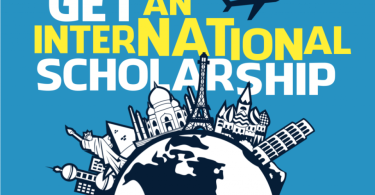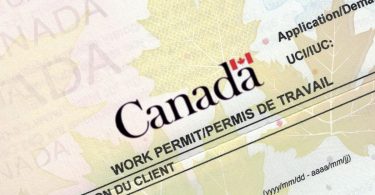Canada has proven over the years to be a global education hub, attracting students from all over the world to its universities and colleges. While gaining admission to these institutions are competitive, obtaining a study visa is a crucial step for international students commencing study in the country.
Table of Contents
This comprehensive guide sheds light on the basics of the Canadian student visa application process, from eligibility criteria to required documentation. It also details the reasons behind Canada’s popularity among international students, the top courses available, and how to avoid rejection, among others.
Reasons for Choosing Canada
High-Quality Education: Canada boasts some of the world’s top-ranked universities, with a strong presence in international rankings. The country’s academic institutions provide exceptional learning environments, state-of-the-art facilities, and comprehensive support services to help students excel academically and personally.
Affordability: Compared to countries like the United States and the United Kingdom, studying in Canada is more budget-friendly. With reasonable tuition fees and diverse scholarship opportunities, international students can receive a quality education without accumulating significant debt.
Multicultural Atmosphere: Canada’s welcoming and diverse society allows international students to immerse themselves in various cultures and experiences. Besides, this multicultural environment fosters a sense of belonging and personal growth.
Employment Prospects: Upon graduation, students can apply for a work permit that allows them to work in Canada for up to three years. This enables graduates to gain practical experience and settle in Canada permanently.
Top Courses for International Students
Several courses offer great potential for international students seeking to study in Canada. They are:
- Master of Business Administration (MBA)
- Master of Computer Applications (MCA)
- Master of Science (MS)
- Bachelor of Business Administration (BBA)
- Bachelor of Technology (B.Tech)
- Hotel Management
- Bachelor of Computer Applications (BCA)
Essential Requirement for Canada Study Visa
As mentioned earlier, to study in Canada, international students must obtain a study visa. This document is issued by the Canadian immigration office and granted to students attending Designated Learning Institutions (DLIs) approved by the government. To apply for a study visa, students must meet specific eligibility criteria and provide the necessary documentation.
Key Eligibility Criteria for Canada Student Visa
Vaccination: Students must be fully vaccinated against approved vaccines, which may include Bharat Biotech Covaxin and AstraZeneca/Covishield.
Acceptance by a DLI: Applicants need to receive an acceptance letter from a Designated Learning Institution (DLI) in Canada.
Sufficient Funds: Students must demonstrate that they have enough funds to cover tuition fees, living expenses, and return transportation for themselves and any accompanying family members.
Clean Background: Applicants must have a clean criminal record and provide a police clearance certificate.
Medical Examination: A medical examination and certificate indicating good health are mandatory.
Intent to Depart: Applicants must convince the visa officer of their intention to leave Canada upon completing their studies.
Documentation Required for Canada Student Visa
Valid Passport: A passport with sufficient validity is essential for the visa application.
Approval Letter from DLI: A confirmation letter from the educational institution is required.
Proof of Finance: Evidence of sufficient funds to cover expenses, including tuition fees and living costs, will be demanded.
Passport-Size Photographs: Recent passport-size photographs meeting specific criteria are required.
Immigration Medical Examination (IME): An examination conducted by approved medical practitioners is required.
English Language Proficiency Test Score: If applicable, scores from language proficiency tests like IELTS or TOEFL will be demanded.
Statement of Purpose: A letter explaining the purpose of travel and the student’s responsibilities should be ready upon demand.
Credit Card: A valid credit card for online payment of the visa processing fee is demanded.
Intake Periods in Canada
There are three intake periods in Canada for college and university admissions. They are the fall, winter, and spring/summer periods.
Fall intake: This is the most common intake period. Applications are typically accepted from September to December or January.
Winter intake: This intake period extends the fall admissions and offers a wider range of courses. Applications are typically accepted from January to May.
Spring/Summer intake: This intake period offers a more limited range of courses. Applications are typically accepted from May to August.
How to apply for a Canadian student visa
The application process for a Canada student visa involves several steps, which are detailed as follows:
Choose Application Method
There are two ways to apply for a Canadian student visa. Decide whether to apply online or on paper.
Online application: To apply online, you will need to create an account on the website of the Canadian government and submit your application form and supporting documents electronically.
Paper application: To apply on paper, you will need to download the application form from the website of the Canadian government and mail it to the appropriate visa office along with your supporting documents and fees.
Pay Required Fees
The visa application fee for a Canadian student visa is CAD 150. You can pay this fee online or by mail. You will also need to pay the biometrics fee.
Submit Application
Once you have chosen your application method and paid the visa application fee, you will need to submit your application and supporting documents to the visa office.
Biometric Appointment
After you have submitted your application, you will be required to give your fingerprints and a photo (biometrics). You give your biometrics at a Visa Application Center (VAC).
Await Decision
Await a decision on your application. The processing time for a Canadian student visa can vary depending on the time of year and the workload of the visa office. However, it is usually 6 weeks.
Receive Passport Request and Travel to Canada
If approved, you will receive a request for your passport. The endorsement on your passport is the permit. Upon receiving your study visa, you can travel to Canada and begin your study.
Policy on Dependents for International Students in Canada
Full-time international Students can bring in their spouse or common-law partner along with them to Canada by applying for a dependent visa. You must, however, show that you have enough money to support your dependent. Dependents are allowed to work full-time if they are in Canada for one year or more. In most cases, you can apply for an open work permit for your dependent. This means that they can work any job they want when they arrive in Canada. You do not need a job offer or labour market impact assessment to apply for a work permit for your dependent.
How much money do you need for a Canadian student visa?
To study in Canada, you will need to show that you have enough money to support yourself during your stay. The amount of money you need will depend on a few factors, including where you will be studying, whether you are bringing any dependents with you, and your living expenses.
Money requirements for students outside Quebec
If you are planning to study outside Quebec, you will need to show that you have CAD 10,000 in accessible funds for the first year of your studies. This amount must be available in a Canadian bank account or in the form of a letter of financial support from a sponsor.
If you are bringing any dependents with you, you will need to show an additional CAD 4,000 for each dependent.
Money requirements for students in Quebec
The money requirements for students in Quebec are slightly higher. You will need to show that you have CAD 6,569 in accessible funds for the first year of your studies if you are under 18 years old. If you are 18 years old or older, you will need to show CAD 13,134.
The amount of money you need will increase if you are bringing any dependents with you. For each dependent under 18 years old, you will need to show an additional CAD 3,035. For each dependent 18 years old or older, you will need to show an additional CAD 6,070.
How to prove you have enough money
There are a few ways to prove that you have enough money to support yourself during your studies in Canada. You can:
Provide a bank statement showing that you have at least the required amount of money in a Canadian bank account.
Provide a letter of financial support from a sponsor who is a Canadian citizen or permanent resident. The letter must state that the sponsor is willing to provide you with financial backing for the duration of your studies.
Provide a guaranteed investment certificate (GIC) from a participating Canadian financial institution. The GIC must be for the required amount of money and must mature during your studies.
What if I don’t have enough money?
If you don’t have enough money to support yourself during your studies in Canada, you may be able to get a student loan. Student loans are available from the Canadian government and private lenders.
You can also apply for scholarships. Scholarships are awarded based on academic merit.
Study Visa Renewal in Canada
Students in Canada must have a valid study visa to live and study in the country. If your study visa expires before you complete your program, you must apply to renew it. You should apply at least one month before your permit expires. Students can apply for it online or by mail.
What to Do If Your Canada Study Visa Is Rejected
Canadian study Visas are in high demand, so it is not uncommon for applications to be rejected. Here are some of the most common reasons for rejection and how to avoid them:
Inadequate financial funds: The Canadian government requires international students to show that they have enough money to support themselves during their studies. This means having access to at least CAD$10,000 for each year of study. You can demonstrate this by providing bank statements, financial aid letters, or other documentation.
Unsuitable letter of acceptance: Your application must include a letter of acceptance from a designated learning institution (DLI) in Canada. This letter should confirm that you have been accepted to a program of study and that the DLI is aware of your financial situation.
Missing documents: Your application must be accompanied by all required documents, such as your passport, language test scores, and police clearance certificate. If you are missing any documents, your application will be rejected.
Plans to return home: Study permits are temporary visas, so you must demonstrate that you intend to return to your home country after your studies.
This can be done by providing evidence of ties to your home country, such as a job offer, property ownership, or family commitments.
If your study visa is rejected, you will receive a letter from the Immigration, Refugees and Citizenship Canada (IRCC) explaining the reason for the decision. You can then reapply for a study permit, but you must address the issues that led to the rejection of your previous application.
If you believe that your study visa was wrongly rejected, you can appeal the decision. Note that the appeal process is complex and time-consuming.




